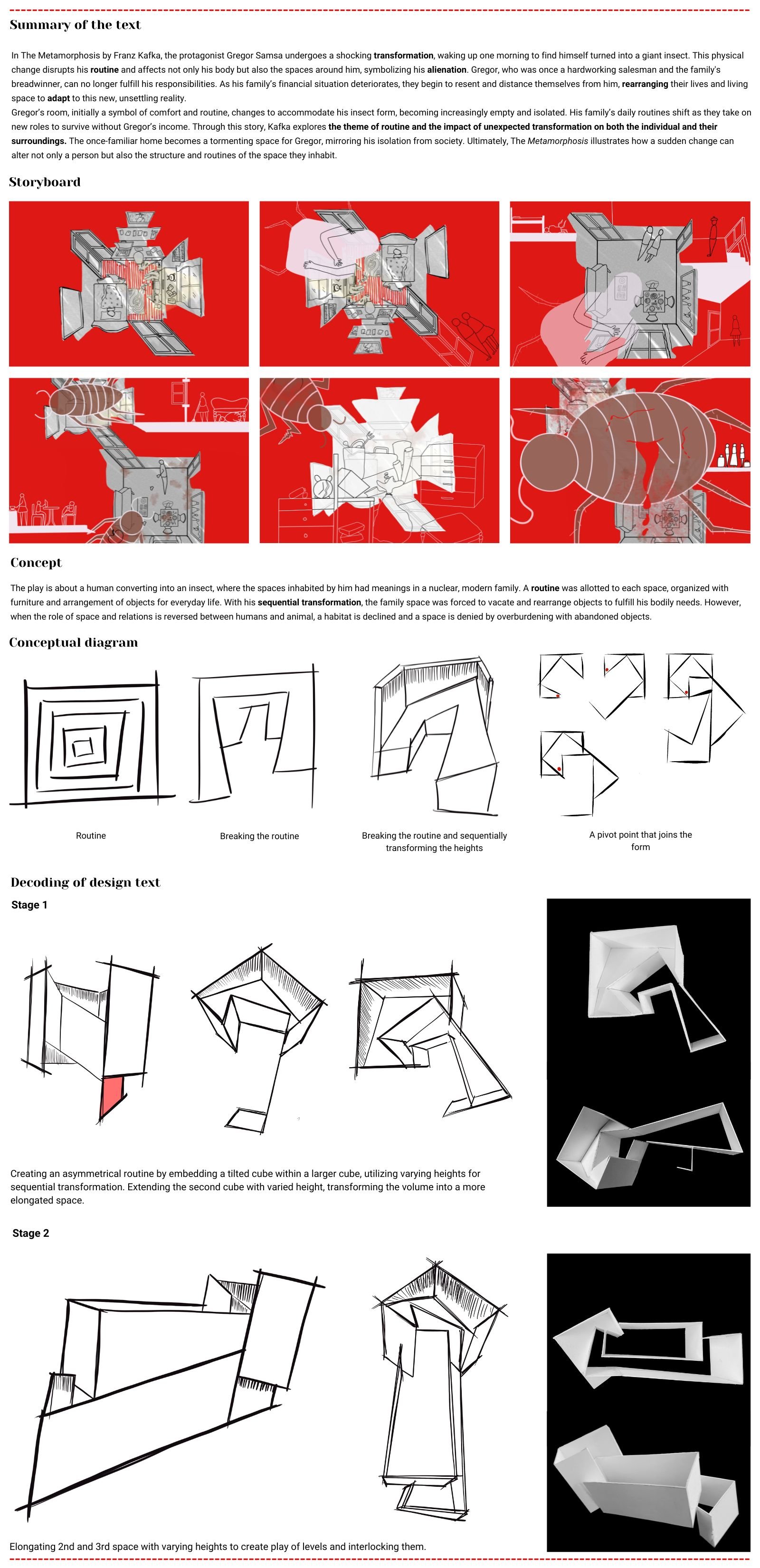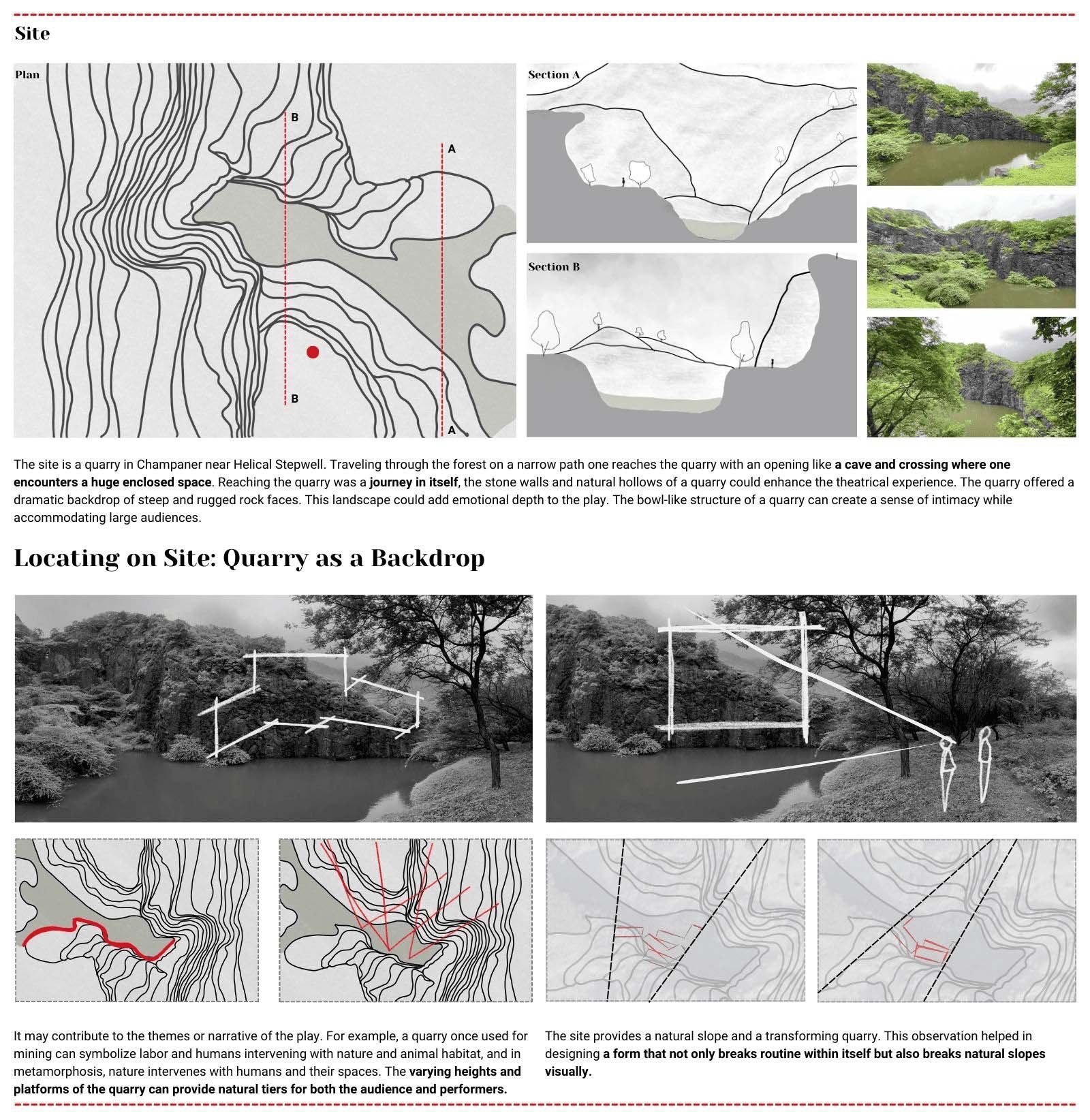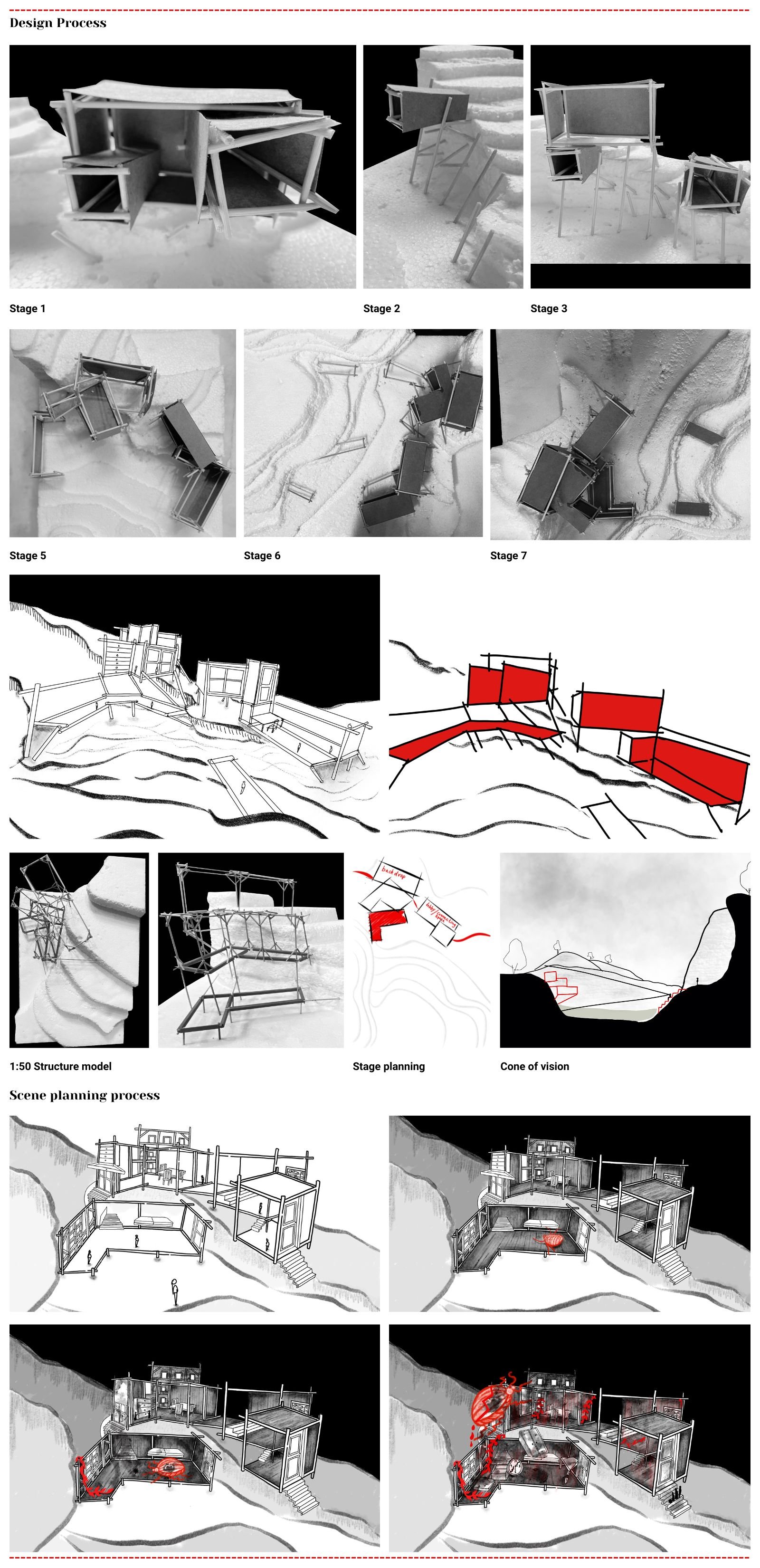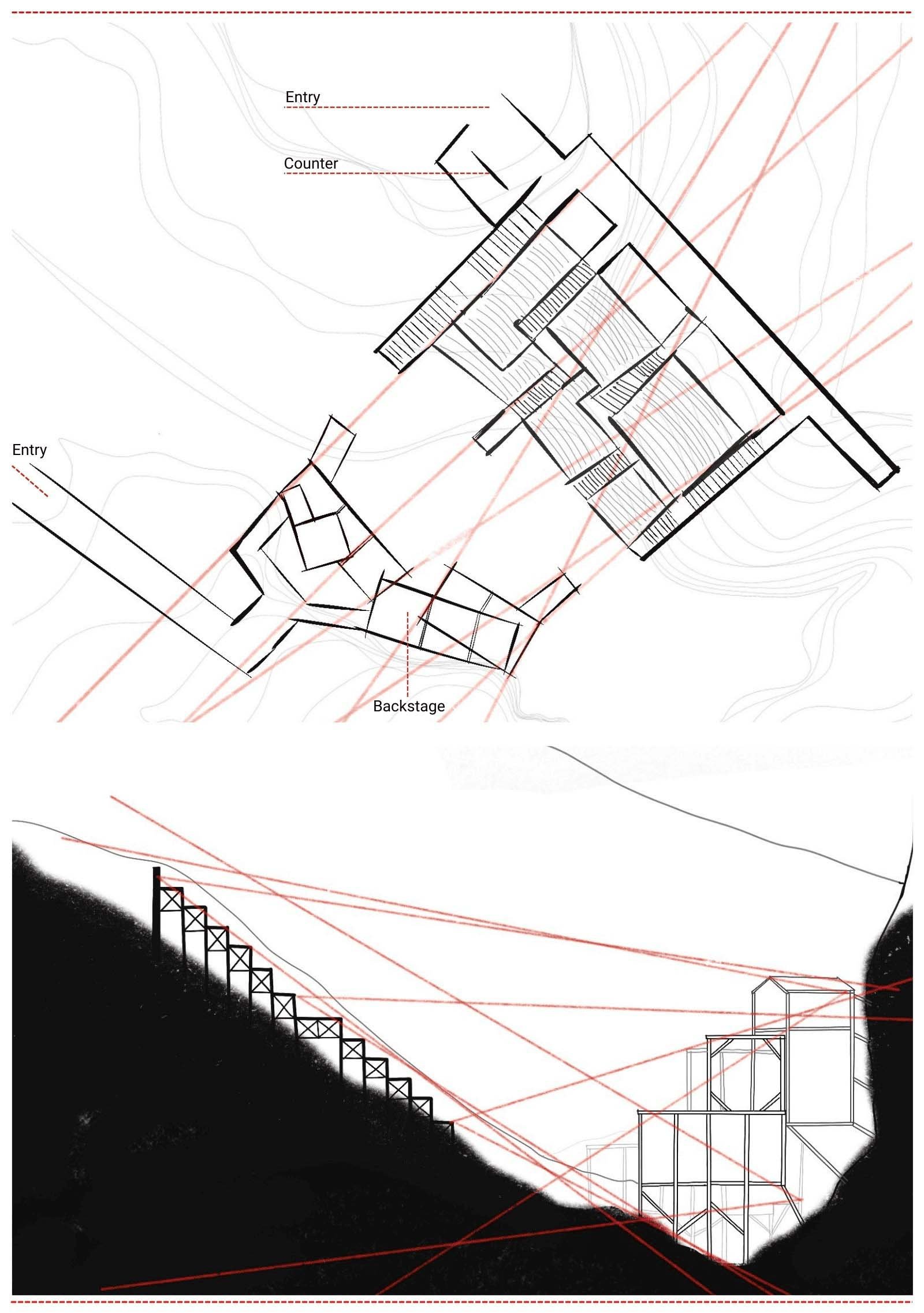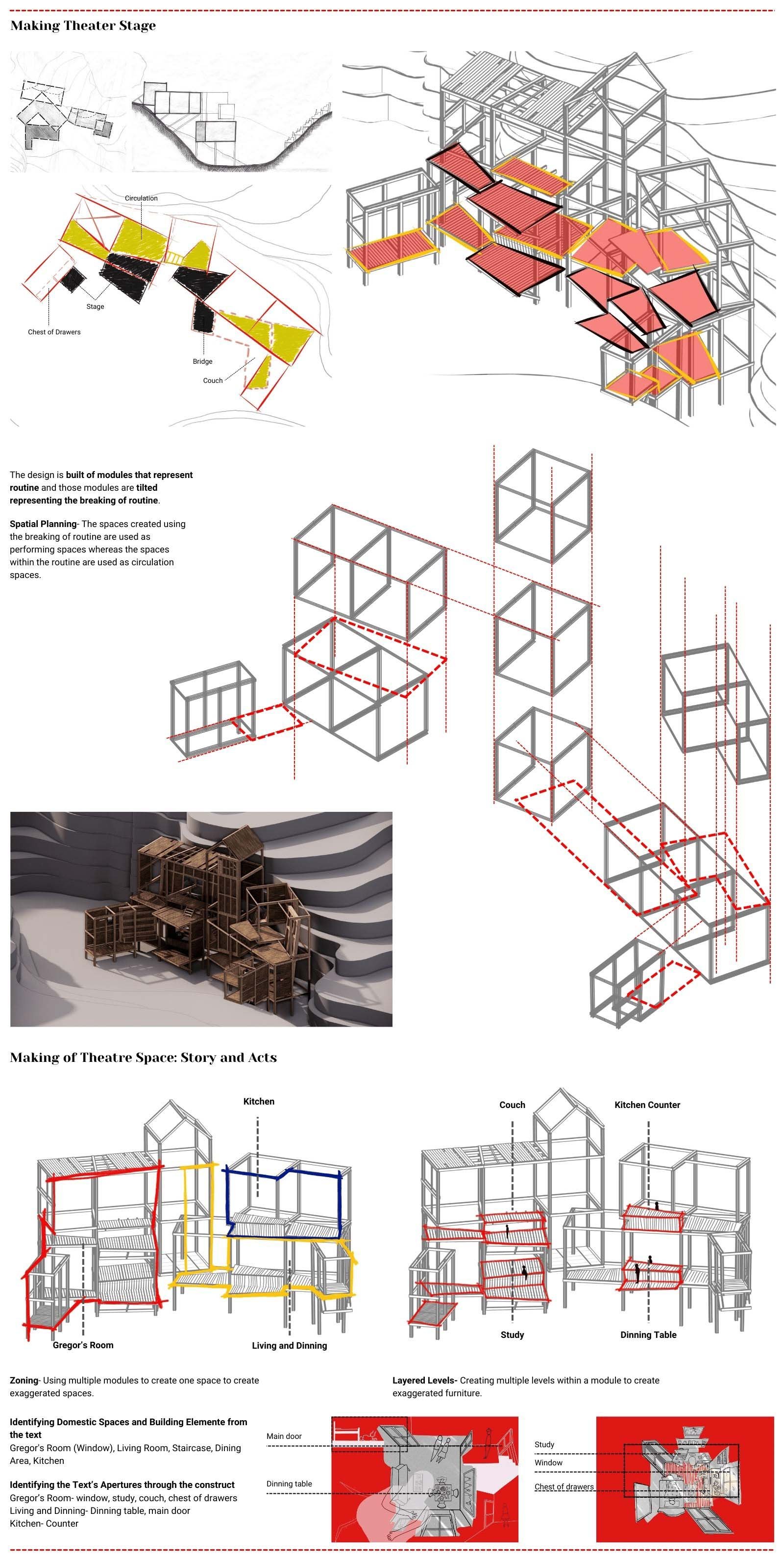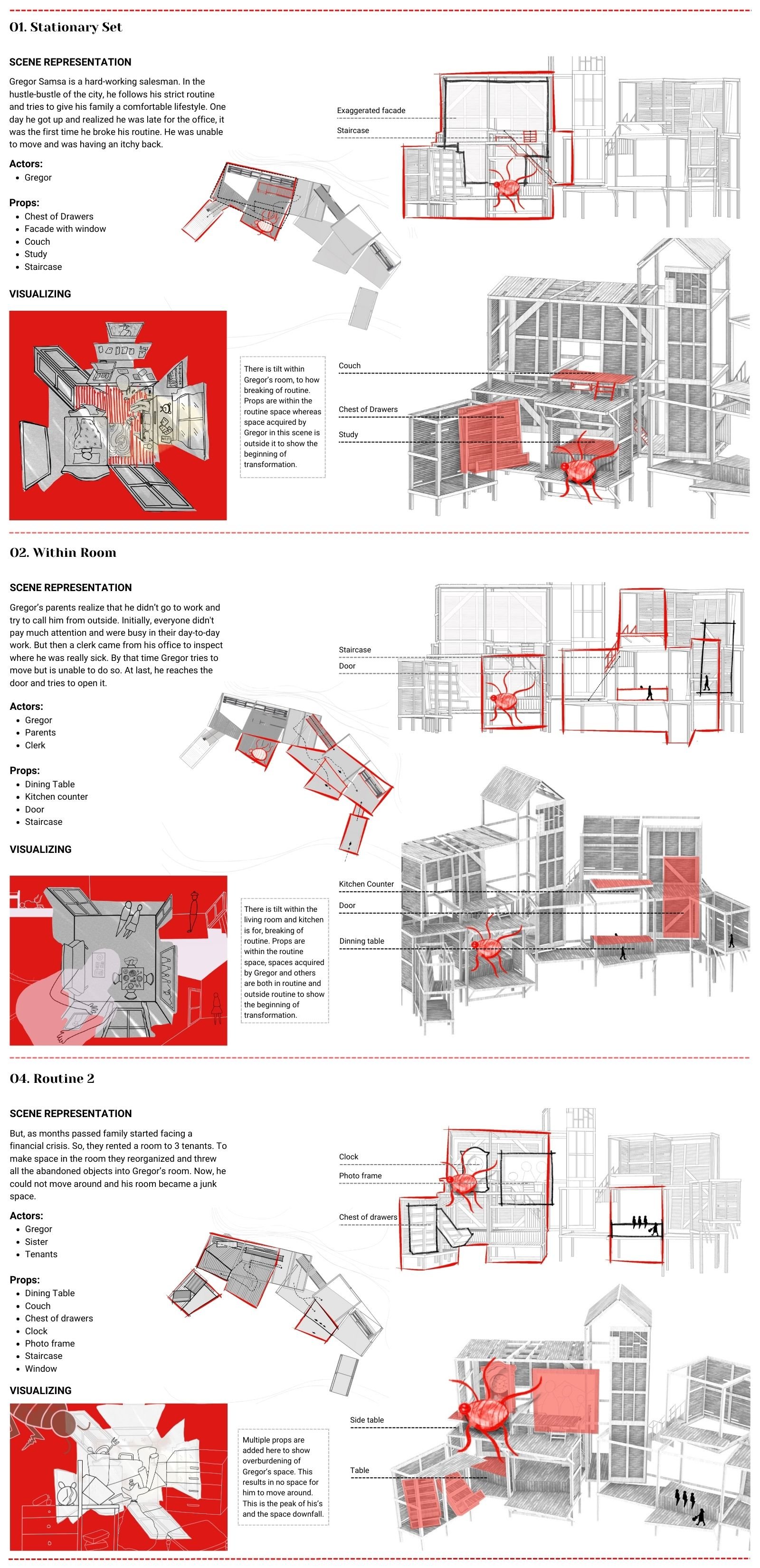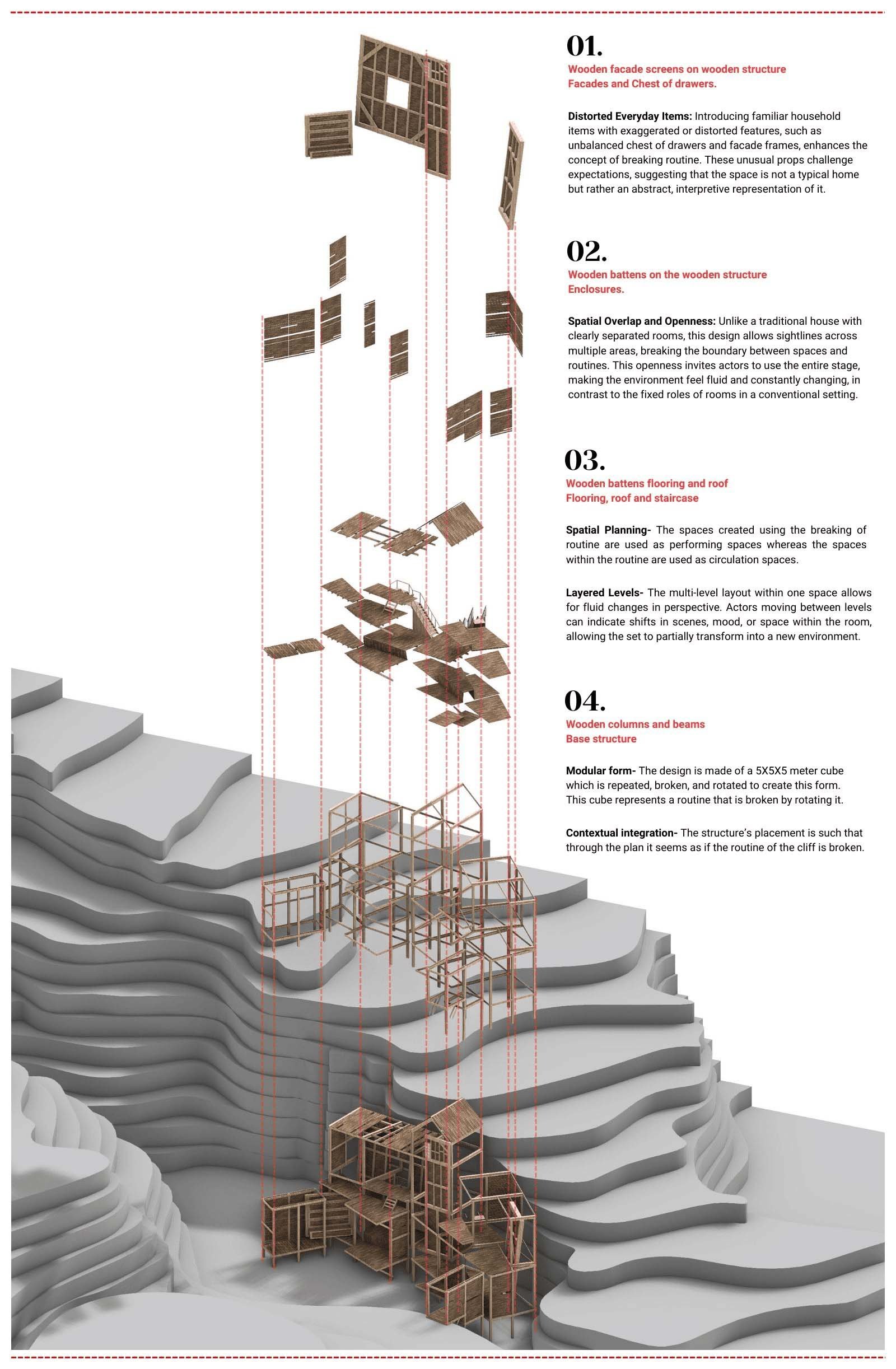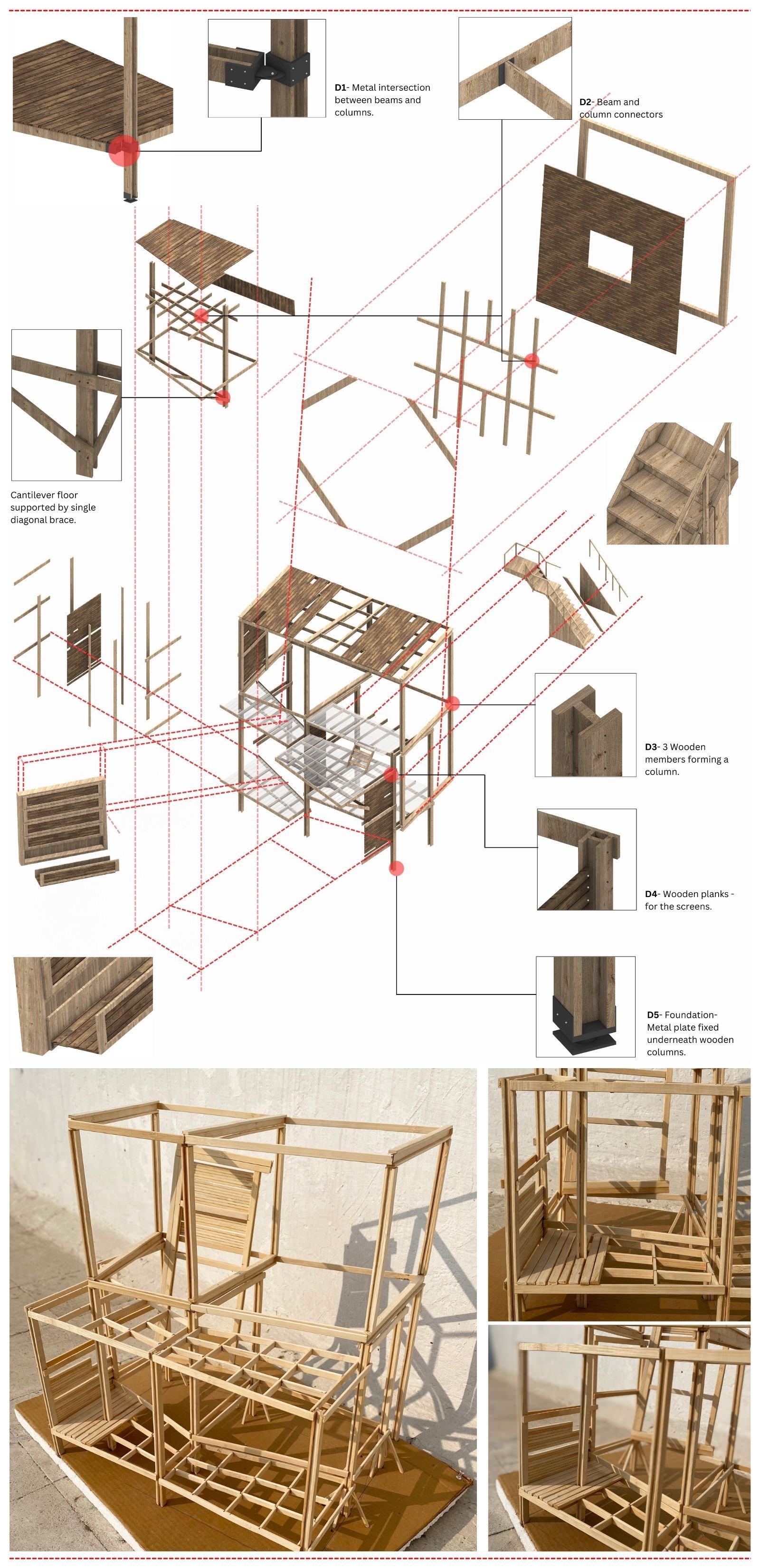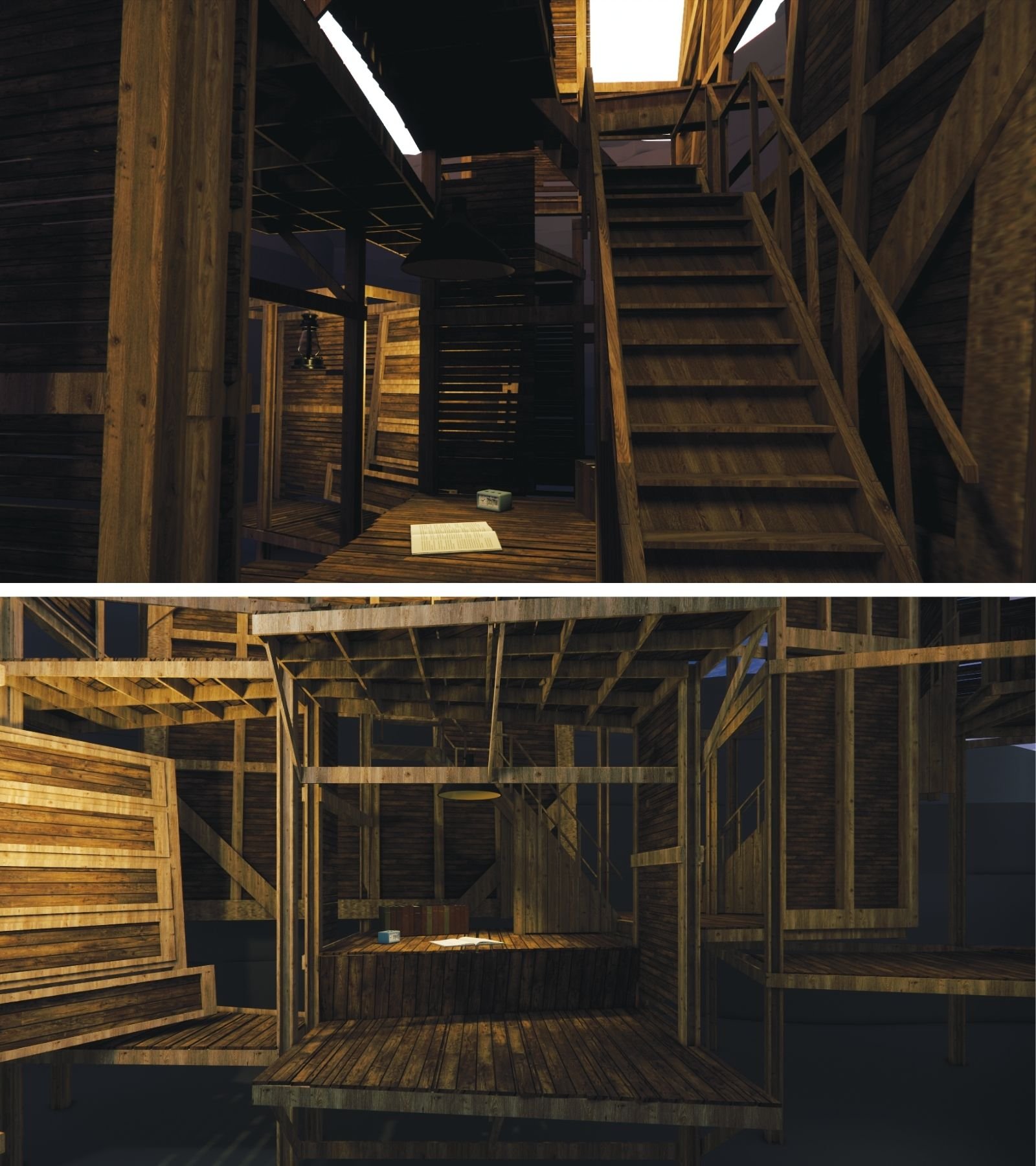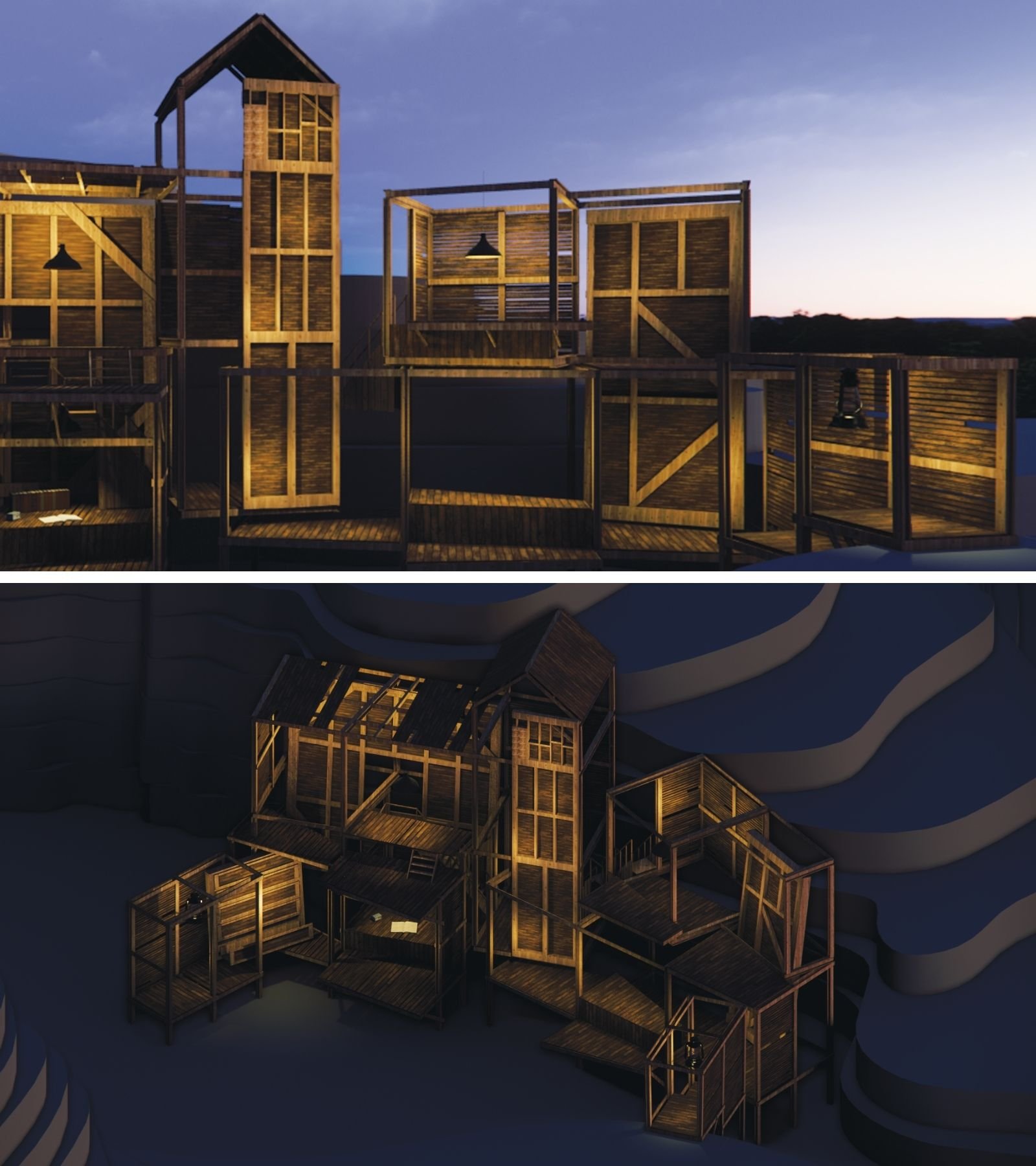Your browser is out-of-date!
For a richer surfing experience on our website, please update your browser. Update my browser now!
For a richer surfing experience on our website, please update your browser. Update my browser now!
The design intends to create an abstract of a home in the form of a theatre stage. The play is about a human converting into an insect, where the spaces inhabited by him had meanings in a nuclear, modern family. A routine was allotted to each space, organized with furniture and arrangement of objects for everyday life. With his sequential transformation, the family space was forced to vacate and rearrange objects to fulfill his bodily needs. However, when the role of space and relations is reversed between humans and animal, a habitat is declined, and space is denied by overburdening with abandoned objects.
